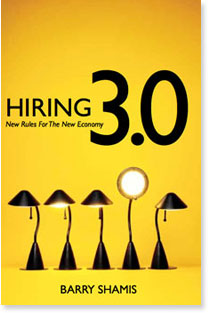|
Interview QuestionsChapter Ten - Interview Questions
An effective question is any question that gets information that helps predict success. As was discussed in the previous chapter, past behavior predicts future behavior. The important data from the interview is the person’s past behavior. Effective questions are questions that get information and data about past behavior. Effective interview questions have four characteristics. • Easy to answer Easy To Answer Don’t ask hard questions, difficult questions, and multi-part questions. Any question that requires the candidate to think increases anxiety and lowers the quality of data. Although this may sound counterintuitive, it is true. The questions asked in the interview need to be so simple that the candidate doesn’t need to think about the answer. The person is simply sharing how they handled situations and tasks in the past and should not have to think about those answers. Tough, difficult questions put the candidate under pressure, increase anxiety and lower the quality of data received. It doesn’t help in any way, shape, or form to ask difficult questions.
The second characteristic of effective questions is they have only one answer. Every question asked in an interview should have only one answer. By definition, this means only closed-ended questions should be asked. The definition of a closed-ended question is any question that has only one answer. Let me show some examples before you get up in arms. A typical interview question is, “Tell me about dealing with deadlines”. This is an open-ended question. The candidate has the option of answering with any number of responses. There is no single answer that is correct. The closed-ended version of this question is, “How did you handle the budget deadline on the ABC project?” With this question, there is only one correct answer. The answer is what the person did in that specific situation. The result of closed-ended questions is specific, behavioral data about how the person handled a deadline. This information is then used to predict future behavior. There are four problems with open-ended questions. 1. Open-ended questions put the candidate under pressure. In response to an open-ended question the person thinks, “Oh my, what are they looking for?” Trying to figure out what the interviewer is looking for creates increased stress. As the person’s anxiety level goes up, the quality of data goes down. The goal is to put the person at ease, not create stress. 2. Opened-ended questions provide an opportunity for the person to give the “book answer”. Too often the person tries to figure out what the interviewer is looking for and gives that answer. This is not good data and does not help predict future behavior. 3. There is no statistical correlation between the answer the person gives to an open-ended question and future behavior. Open-ended questions are fairy tales with no basis in fact. The answer leaves you guessing what the person will actually do in the future. A closed-ended question about their behavior results in a behavioral answer. 4. Open-ended questions cause loss of control of the interview. Controlling the interview will be covered in great detail in a later chapter however controlling the interview means controlling the agenda. Are you getting the data needed or getting the data the candidate chooses to share? These may no be the same sets of data. As soon as an open-ended question is asked, the candidate controls
the agenda and the interviewer has lost control of the interview. Specific Planned Purpose The third characteristic of effective questions is they have specific, planned purpose. Every question should be asked for a reason. The reason to ask all questions is the same -- You need a piece of data. The AP detailed all the information needed to make a good hiring decision. There are a number of expected outcomes and a number of critical hiring requirements. For each requirement, data needs to be gathered. Questions are designed and asked to get this specific information. Specific information is needed and effective questions should be designed to get the specific piece of information. Interviewing is not just a fishing expedition. Job Related The fourth characteristic of effective questions is they are job related. Stay out of the candidate’s personal life. The goal is to predict how the person will handle the situations on this job. The best way to get there is to explore how they handled similar situations in the past. This has nothing to do with their personal life. One reason to avoid a candidate’s personal life is to avoid the legal liabilities. There are a variety of areas that are “off limits” in a person’s personal life. It is not worth the trouble to list them here. The most important reason to avoid questions regarding personal life is there is no functional business reason to do so. Spend the time exploring work related experiences and behavior. Keep the questions job related by finding out how they handled the same or similar situations to those they will face on your job. To review, the only types of questions to ask in an interview are effective questions. Effective questions have four characteristics. They are easy to answer, have only one answer, have specific planned purpose and are job related. |
COPYRIGHT © 2018 Barry Shamis |
